Over the past few months, Shelf Awareness has reached out to booksellers in Seattle, Wash., to find out how they've dealt with the city's rising minimum wage and what advice they would give other independent booksellers facing similar increases. The series began yesterday with a look at Elliott Bay Book Company; it will continue into next week.
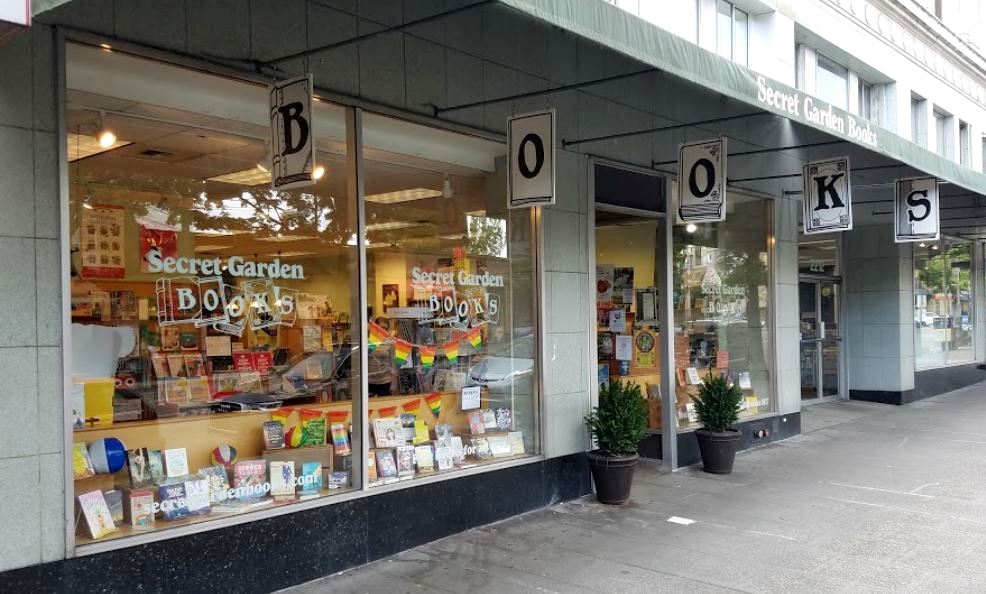 "The key thing is, we cannot change the price of our goods, we can't raise a hamburger from $5 to $5.75," said Christy McDanold, owner of Secret Garden Books in Seattle's Ballard neighborhood. The 2,700-square-foot store sells books for children and adults, and, depending on the time of year. McDanold employs 9-12 people.
"The key thing is, we cannot change the price of our goods, we can't raise a hamburger from $5 to $5.75," said Christy McDanold, owner of Secret Garden Books in Seattle's Ballard neighborhood. The 2,700-square-foot store sells books for children and adults, and, depending on the time of year. McDanold employs 9-12 people.
"At this point," she continued, "we're just tightening everything and trying to run a tighter ship with hours and staffing."
Since the minimum wage law was passed, McDanold said, she's seen "really varied sales" from year to year. The toughest years were when the store had "the worst hours booked"; 2016 was particularly bad in that regard. Since then, she has tried very hard to manage her staff's total hours and make sure that there is never too much overlap. She reported that the store is small enough that two staff members can usually handle the mornings and evenings, and she rarely has more than a few working at the same time.
Noting again that while booksellers cannot change their cost of goods, McDanold said "we can change where we source them." She added that the American Booksellers Association has "coached us well" on that front, and she has gotten much more proactive about finding good deals through ordering direct from publishers.
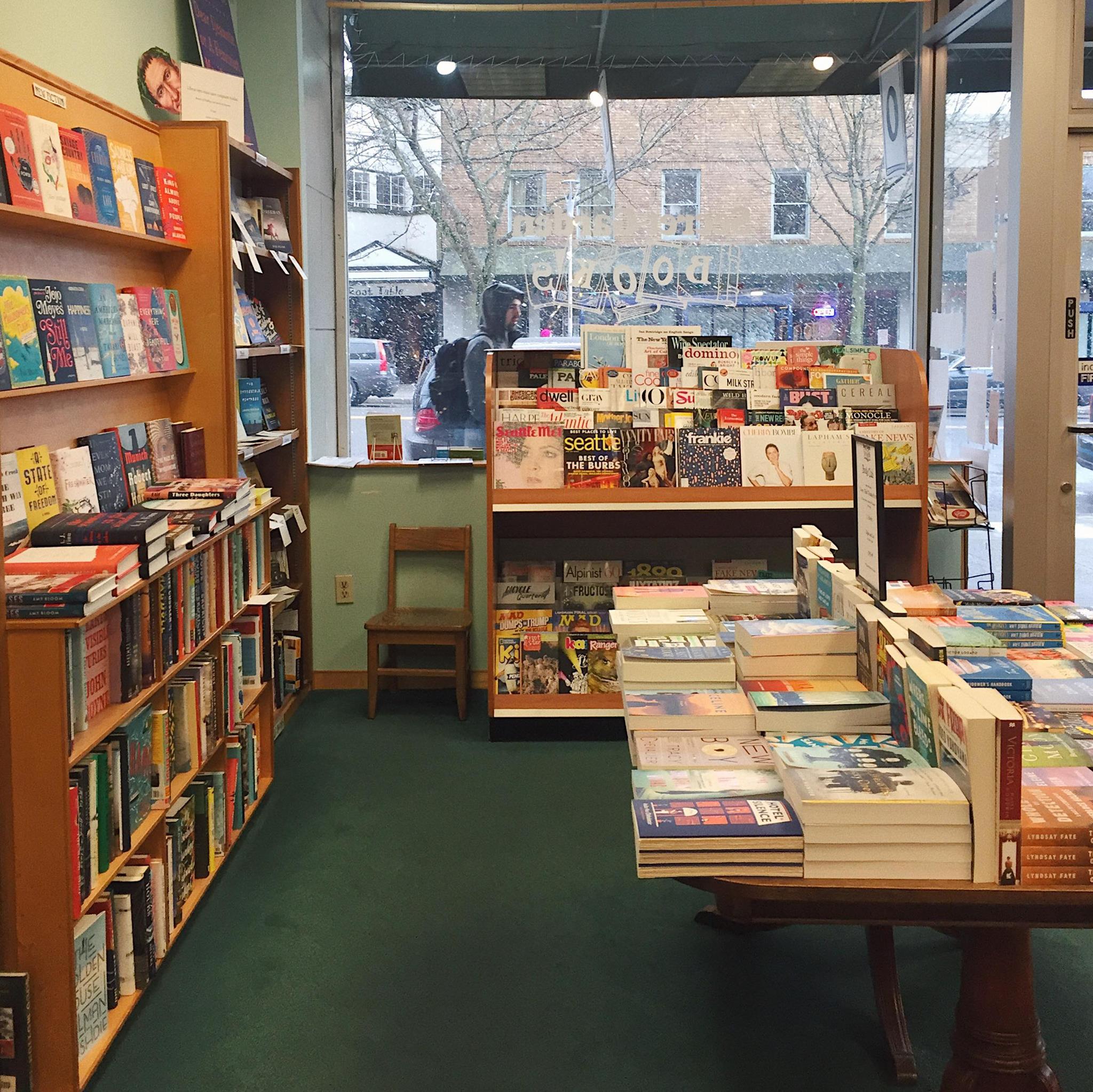 When asked if she's adjusted her inventory or sidelines mixture to help offset the rising minimum wage, McDanold replied that the benefits of high-margin sidelines were a "myth." She pointed out that they were often freighted and non-returnable, and still need to be priced fairly. And when they don't move, items that are left over "eat into that margin." She added that finding bookstore-appropriate sidelines is a source of "ongoing excitement," which can become very tricky when booksellers are "all finding the same sidelines."
When asked if she's adjusted her inventory or sidelines mixture to help offset the rising minimum wage, McDanold replied that the benefits of high-margin sidelines were a "myth." She pointed out that they were often freighted and non-returnable, and still need to be priced fairly. And when they don't move, items that are left over "eat into that margin." She added that finding bookstore-appropriate sidelines is a source of "ongoing excitement," which can become very tricky when booksellers are "all finding the same sidelines."
On the subject of diversifying her business model, McDanold said that she's had only limited opportunities for business-to-business sales, but she has formed a great relationship with a credit card processor based in Ballard. Aside from that, she continued, in a city with so many bookstores, it often feels that they're all competing for the same thing. "It's a competitive town to be a bookseller in," she remarked.
At this point, McDanold feels that "nothing can be any tighter than it already is," in terms of staffing, hours and ordering. The only thing left to do is to "buck-up" her store's sales.
McDanold stated that the "worst thing" about the minimum wage increase has been the way it's narrowed the salary gap between brand new and experienced employees. Going into 2019, an employee with only a few months' experience would see a raise of almost 10%. As a result, McDanold chose to give every employee, whether they'd just started out or had been there nearly 15 years, the same sort of raise. Otherwise, she explained, it simply "didn't seem fair."
Prior to the minimum wage law, McDanold would often consider hiring a high school student each year. Now, though, she doubted whether she would hire another high schooler. "It was a great first job for them," McDanold recalled. "We had some really great experiences. But we just can't do it anymore."
In recent years McDanold has seen both far fewer and far less qualified applicants, and a lot less of the sort of applicant who is looking for a flexible part-time job to work around other interests or commitments. "What $15 has taken away was the flexibility," she elaborated. "People wanted to work here because the hours could be flexible, they could work it around school, family, being an artist. We could meet them with the job that they needed."
When asked about the city's support of small businesses, McDanold answered that there "really has been very little help" from the city on "just about anything." In addition to the implementation of the minimum wage increases, she pointed to a variety of city mandates, taxes and fees, hardly any of which make allowances for small businesses. With regard to the passing of the $15 minimum wage law, McDanold recalled that having reservations about it put her in a tough position. "It's not a discussion that I can have," she said. "If I had these opinions out loud, I'd upset every one of my customers."
Looking ahead, McDanold said more work needs to be done to make bookselling a "more sustainable" business. "It's a tough business," she said. "But yet I love it. I have a great, stable staff. We must be doing something right." --Alex Mutter
 Hipocampo Books, "an independent Woman/Latinx owned children's bookstore" featuring "a varied collection of books that represent the rich cultures and languages of western N.Y. as well as toys and children's apparel," opened recently at 638 South Ave. in Rochester. "As we build our store, we will host children's programs and classes, performances, author signings and even opportunities for adults to share their love of children's literature," the bookshop's website noted.
Hipocampo Books, "an independent Woman/Latinx owned children's bookstore" featuring "a varied collection of books that represent the rich cultures and languages of western N.Y. as well as toys and children's apparel," opened recently at 638 South Ave. in Rochester. "As we build our store, we will host children's programs and classes, performances, author signings and even opportunities for adults to share their love of children's literature," the bookshop's website noted. Bailie also cited the indie bookstore revival: "I think people really want to be reading to their children, holding something in their hands. Using electronic methods of reading have been wonderful in a lot of ways and opened up children to learning in a different way, but I think a lot of people are coming back to just having those books in their hands."
Bailie also cited the indie bookstore revival: "I think people really want to be reading to their children, holding something in their hands. Using electronic methods of reading have been wonderful in a lot of ways and opened up children to learning in a different way, but I think a lot of people are coming back to just having those books in their hands."









 James Patterson has
James Patterson has 
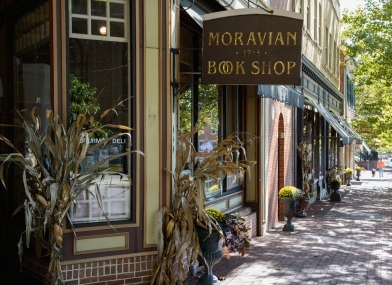 Moravian Book Shop in Bethlehem, Pa., widely considered to be the oldest continuously running bookstore in North America, is adding a taproom run by
Moravian Book Shop in Bethlehem, Pa., widely considered to be the oldest continuously running bookstore in North America, is adding a taproom run by 
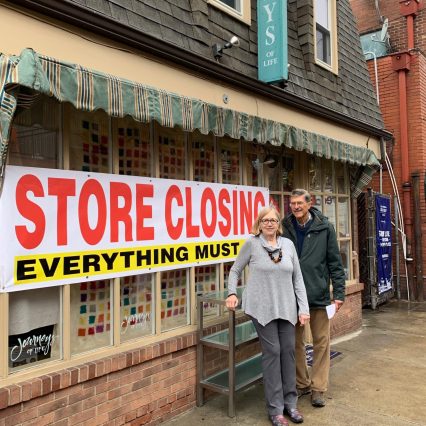 Journeys of Life
Journeys of Life "The key thing is, we cannot change the price of our goods, we can't raise a hamburger from $5 to $5.75," said Christy McDanold, owner of
"The key thing is, we cannot change the price of our goods, we can't raise a hamburger from $5 to $5.75," said Christy McDanold, owner of  When asked if she's adjusted her inventory or sidelines mixture to help offset the rising minimum wage, McDanold replied that the benefits of high-margin sidelines were a "myth." She pointed out that they were often freighted and non-returnable, and still need to be priced fairly. And when they don't move, items that are left over "eat into that margin." She added that finding bookstore-appropriate sidelines is a source of "ongoing excitement," which can become very tricky when booksellers are "all finding the same sidelines."
When asked if she's adjusted her inventory or sidelines mixture to help offset the rising minimum wage, McDanold replied that the benefits of high-margin sidelines were a "myth." She pointed out that they were often freighted and non-returnable, and still need to be priced fairly. And when they don't move, items that are left over "eat into that margin." She added that finding bookstore-appropriate sidelines is a source of "ongoing excitement," which can become very tricky when booksellers are "all finding the same sidelines."
 "
"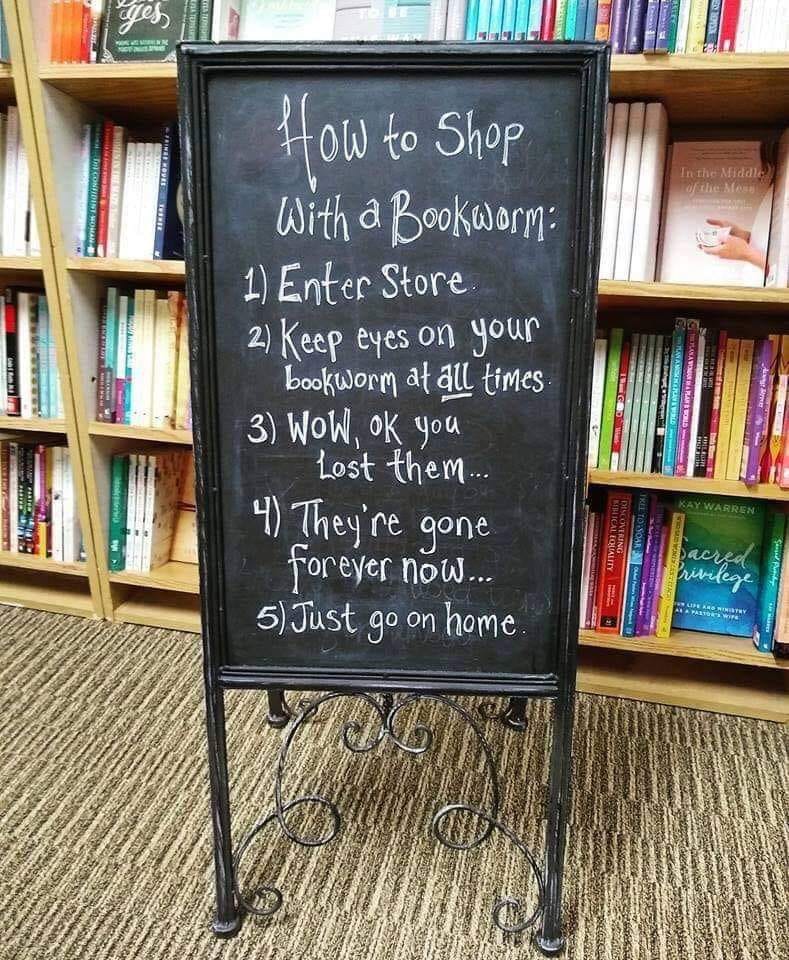 "It's more difficult than you might think,"
"It's more difficult than you might think," 
 Book you're an evangelist for:
Book you're an evangelist for: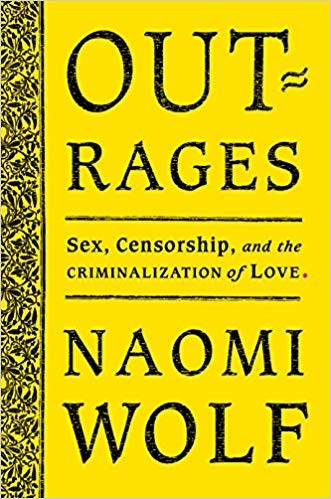 With Outrages: Sex, Censorship, and the Criminalization of Love, Naomi Wolf tackles the history of legislation against homosexuality in the United Kingdom through the poetry, essays and life of a man her readers have probably never heard of: John Addington Symonds. This book harnesses the electric power of Walt Whitman's Leaves of Grass, the righteous energy of first-wave feminism and the terror of criminalized identities, in a style accessible to general readers. As the fight for LGBTQ rights continues, this book is as relevant as it is compelling.
With Outrages: Sex, Censorship, and the Criminalization of Love, Naomi Wolf tackles the history of legislation against homosexuality in the United Kingdom through the poetry, essays and life of a man her readers have probably never heard of: John Addington Symonds. This book harnesses the electric power of Walt Whitman's Leaves of Grass, the righteous energy of first-wave feminism and the terror of criminalized identities, in a style accessible to general readers. As the fight for LGBTQ rights continues, this book is as relevant as it is compelling.
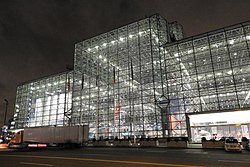 Later this month, we will gather by the river once again for BookExpo, a rite of spring that transforms the cold steel and glass shell of Javits Center into New York City's mega book bazaar.
Later this month, we will gather by the river once again for BookExpo, a rite of spring that transforms the cold steel and glass shell of Javits Center into New York City's mega book bazaar.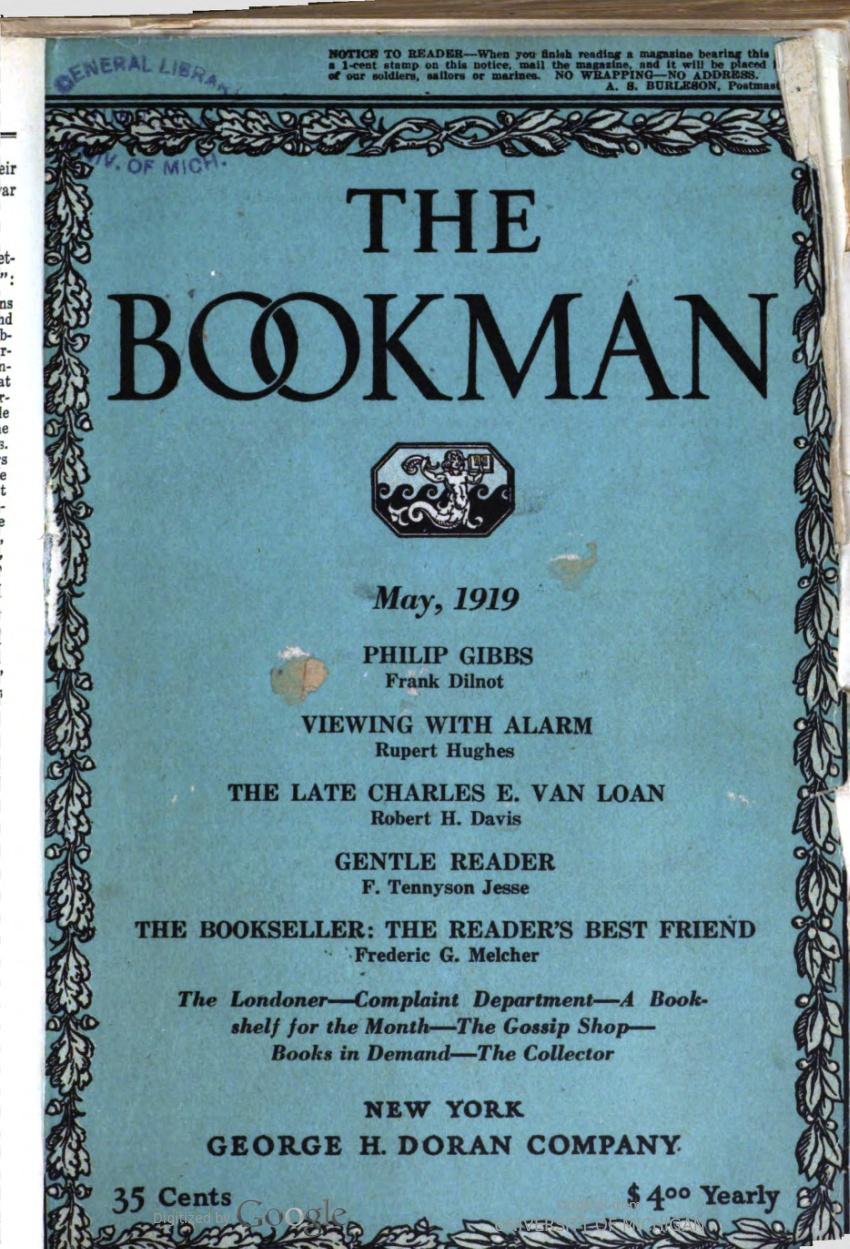 This would be the ABA's 19th annual meeting and only the second held outside New York. About 200 members registered, including publishers, their representatives and retailers. Of special importance to the discussions that year was estimating the effect of war on book trade as well as possibilities for expansion under new conditions.
This would be the ABA's 19th annual meeting and only the second held outside New York. About 200 members registered, including publishers, their representatives and retailers. Of special importance to the discussions that year was estimating the effect of war on book trade as well as possibilities for expansion under new conditions.